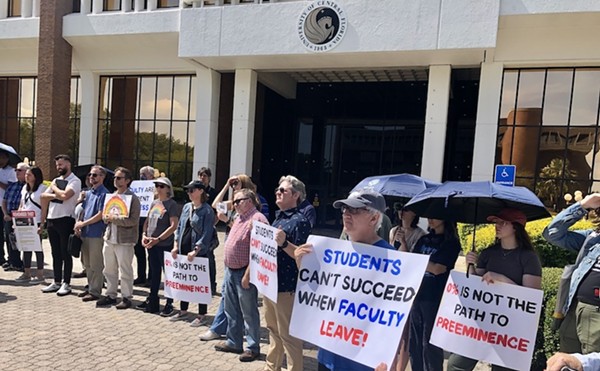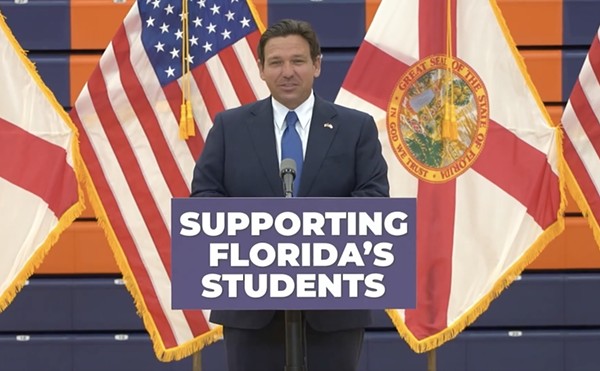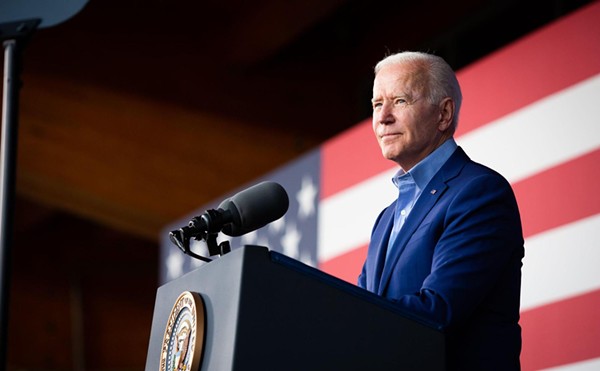Three decades have passed since the last helicopter rose from the American embassy roof in Saigon, and in that time, our leaders still feel the need to announce, at regular intervals, that the Vietnam War is behind us. Yet, in stone-headed contradiction, they also regularly haul the nation into situations that repeat the bungled thinking behind that war. So here we are again, this time mired along the Euphrates instead of the Mekong.
Listen up to a few of the obvious lessons of Vietnam:
Military superiority alone cannot trump an adversary's political staying power. Never underestimate the forces of nationalism.
The majority of the people in the country your army has entered may passively support the basic goals of your mission, but it is angry minorities who more often determine the outcome.
No single nation-state, regardless of the immensity of its armed power, can carry out these missions alone. The United States is now bending, economically and otherwise, under the costs of the mostly unilateral invasion and occupation of Iraq.
Why can't our leaders accept these lessons and take them to heart? Probably the uppermost reason is that we lost the Vietnam War. Losing is unacceptable in America. Nice guys finish last, and all that. We do not teach our children that one learns from mistakes, not successes. Instead we teach them the platitudes we are hearing now from President George W. Bush's campaign for re-election: "We will not cut and run." Even if none of our premises for invading Iraq have been validated, "we did the right thing, and the world is better off for it."
Anyone who says Vietnam isn't still in our heads must be living in solitary in a maximum-security prison. That war permeates the presidential campaign. Democrat John Kerry has been attacked by a group of Vietnam veterans who see him as a turncoat, because when he returned to the States from his combat duty, he became an outspoken advocate against the war. These men say his medals were not properly earned and his wounds not serious. But men who actually served under him on swift boats on the ambush-lined rivers of Vietnam hail him as a brave brother-in-arms. A number of them campaign at his side.
The Republicans in the White House say he is unqualified to be the nation's commander in chief. Their reasons have little to do with his military qualifications. That may be because his GOP accusers either actively avoided the draft during Vietnam or, in the president's case, wangled special treatment to get assigned to the Air National Guard in Texas. They say, for instance, that Kerry wants to be on both sides of the Iraq issue, voting for the war resolution in October 2002 but then denouncing the president for the reckless manner in which he rushed to war – without most of our traditional allies and without exhausting every possible avenue of diplomacy. Yet a lot of Americans supported the vote for the war resolution and now fault the president for his headlong decisions afterward.
Vice President Dick Cheney – who sought and received five draft deferments to avoid Vietnam and is now the administration's leading hawk – has taken to calling Kerry a milquetoast because Kerry, in a recent speech, said: "I believe I can fight a more effective, more thoughtful, more strategic, more proactive, more sensitive war on terror that reaches out to other nations and brings them to our side and lives up to American values in history."
Speaking to a partisan crowd in Dayton, Ohio, Cheney said: "America has been in too many wars for any of our wishes, but not a one of them was won by being sensitive." He went on to use the word "sensitive" again and again in a sneering tone, drawing easy laughter each time.
The Kerry camp responded by citing its candidate's Vietnam war record and by pointing out that Bush himself had used the word "sensitive" in relation to war and the exercise of military strength. At the christening of the aircraft carrier USS Ronald Reagan in 2001, Bush said that "because America is powerful, we must be sensitive about expressing our power and influence."
Researching such quotes can be helpful in restoring one's sanity during the prevaricating days of presidential elections. In 1989, when Cheney was defense secretary in the administration of George Bush's father, a Washington Post reporter, George C. Wilson, asked him about his Vietnam deferments and he said, "I had other priorities in the '60s than military service."
Sen. John McCain, whose Vietnam service as a bomber pilot included several medals and five years as a prisoner of war in the Hanoi Hilton, recently called on President Bush publicly to denounce the political ad paid for by the veterans critical of Kerry's antiwar advocacy. Bush declined. A few days later, McCain was campaigning with Bush in Florida, a pivotal electoral state, hugging him onstage and, by doing so, giving the president the imprimatur of McCain's Vietnam record and POW internment. McCain, who lost to Bush in the Republican primaries four years ago, is often at odds with the president. In contrast, he has bonded with fellow veteran Kerry in the Senate, a closeness stemming from their work together on Vietnam issues.
If ever one needed proof that presidential political campaigns have become a farce, that tableau of McCain hugging Bush and praising him is a beaut. The pilot who flew combat missions over Vietnam in a fake embrace with the pilot who flew after lunch over Texas oil fields: the big lie personified.
The debacle of the Vietnam War will not fade away until Washington stops lying this nation into wars. Serial lies were broadcast about Vietnam from Washington. And then, in futile attempts to erase that memory, our politburo lied to the public in order to stage weekend wars in Grenada and Panama, rehearsals for the Gulf War, the one that was supposed to bury Vietnam forever. And now we have the embarrassment that is the Iraq war, constructed almost entirely on lies and distortions and faux-conservative ideology.
At least our leaders during Vietnam grew embarrassed and humiliated. The present administration, except for Secretary of State Colin Powell, admits no mistakes. George Bush says he is guided by God and his conscience is clear. If you disagree with him, it means you are saying it is God who is making the mistakes.
Vietnam is back because it never went away, and because Iraq reminds us powerfully of it.
All the talk about individual war records is male locker-room blather. Courage and bravery have almost nothing to do with it. I have been a soldier and a war correspondent. I learned that fortitude and honor come in many forms and sizes. Men and women who have never carried a gun also perform heroic acts.
It's not heroic for a president to declare himself mistake-free. It just means that he suffers from an absence of humility. It is not heroic to say that another man lacks manhood because he used the word "sensitive." It's just cheap.
Though Iraq is by no means an exact parallel to Vietnam – their cultures and histories and geographies are vastly different – the echoes are all there. Listen to the language we employ when we talk and write about Iraq: "collateral damage," "quagmire," "hearts and minds." This is the argot of Vietnam. And it stays with us because Iraq, too, was an unnecessary war. People are dying needlessly.
The next time somebody in Washington says Vietnam is behind us, let it actually be true.


















